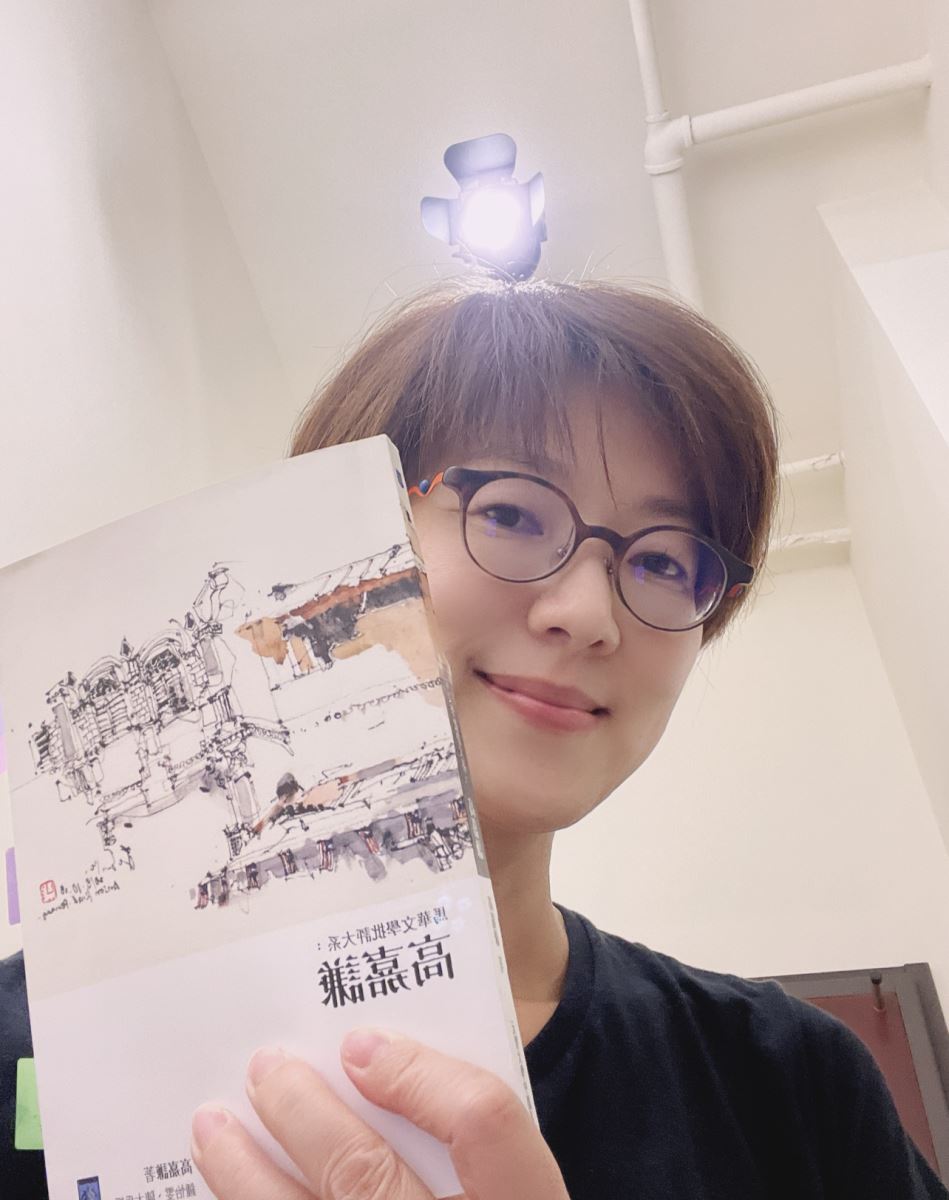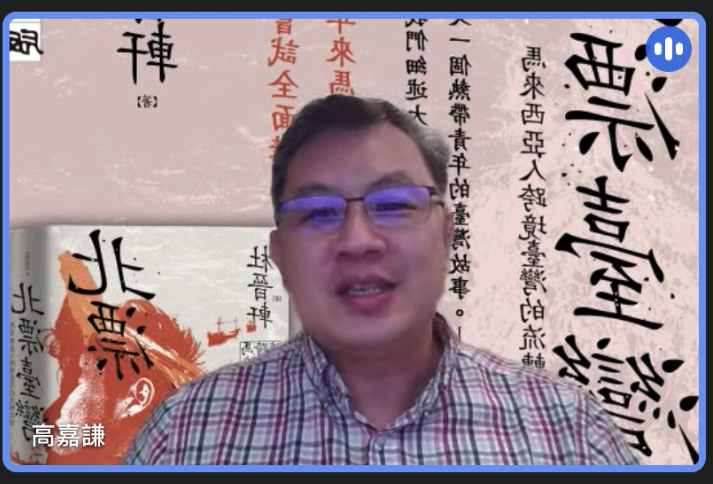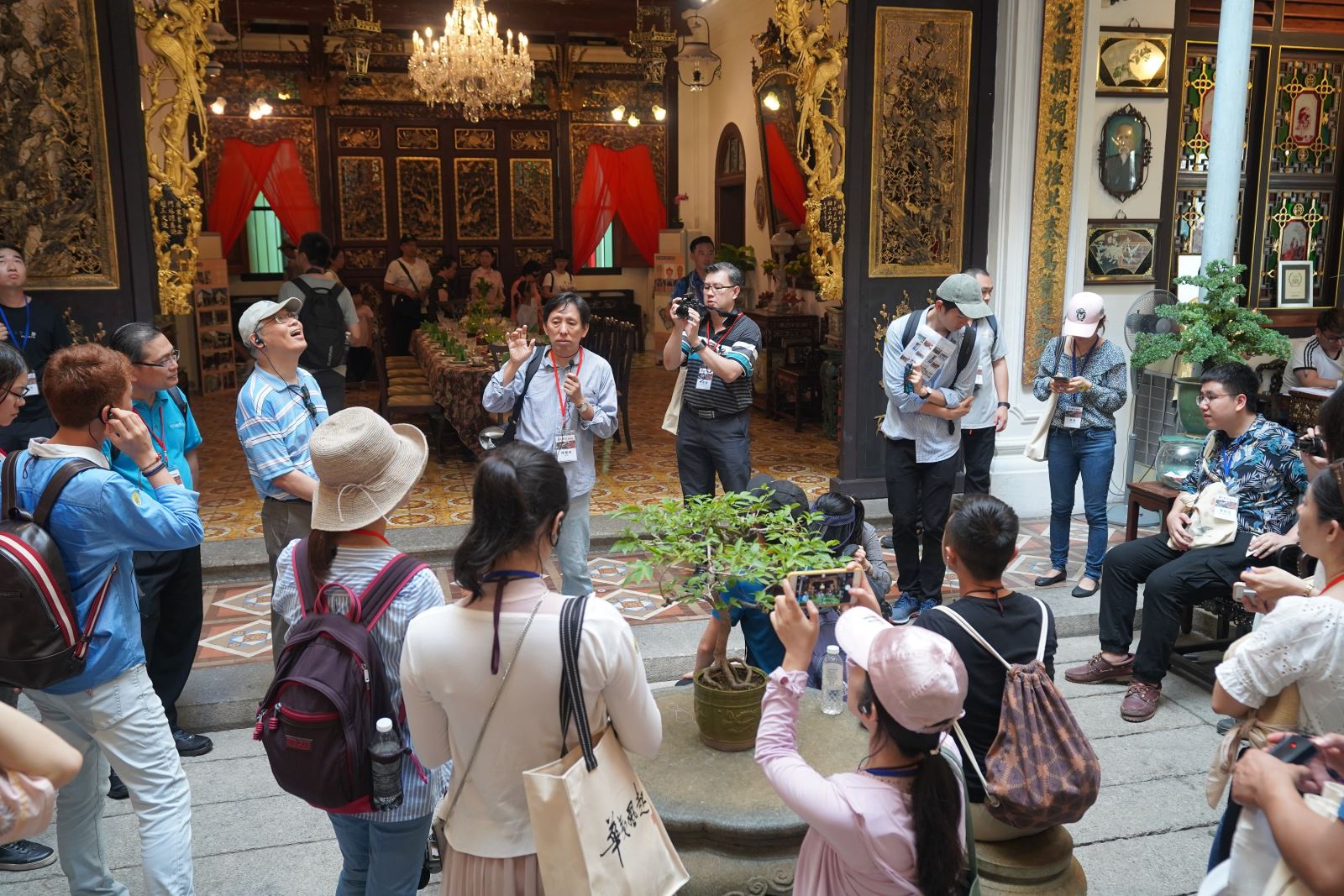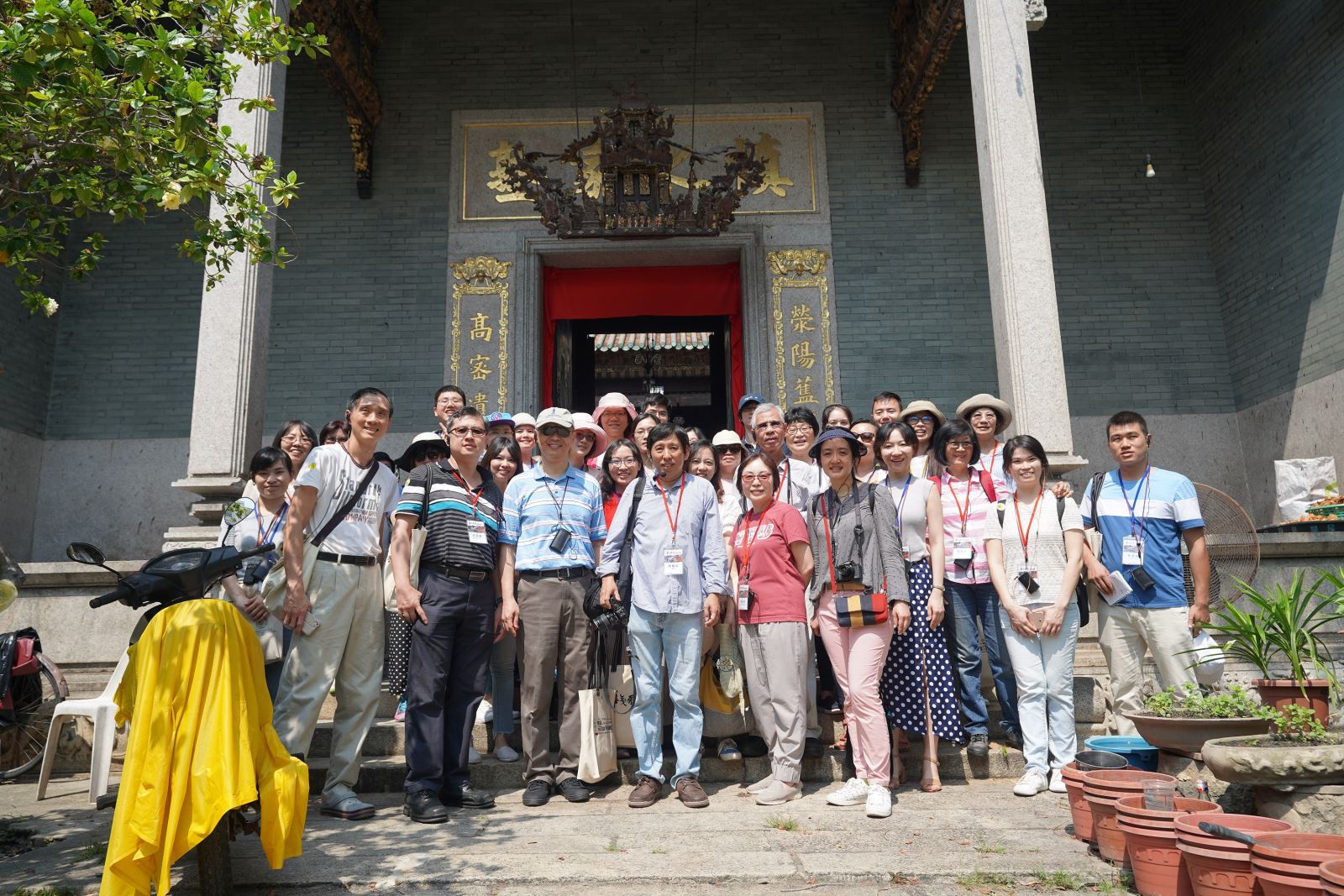Director’s Notebook
Interviewing Professor Ko Chia Cian took me on an extra special journey, which I conducted via videoconference after suddenly having to do self-health management because of the COVID pandemic. Talking to Professor Ko was a first for me because it was like speaking to someone from my own family who happened to have a vastly different cultural background and generational perspective. Thanks to this, I had an amazing conversation with Ko about his experiences living and working throughout Nanyang, which is loosely speaking, the Chinese term for Southeast Asia.


Pic 1 & Pic 2: A Homage to Malaysian-Chinese Literature Despite the COVID Pandemic via Videoconference (Photo Courtesy of Pei Lin Lin)
Whose Language? Whose Literature? A Chat About the Singers and Authors that Shape Culture
Before I interviewed Ko, I followed my habit of reading up on the important works of the person I’m interviewing. As I was preparing, my husband walked by and practically yelled out “Ko Chia Cian and I were both Professor Chin-Shu Huang’s (Note 1) students when we were in college!” My husband then went on to talk about the field work he conducted in Malaysia. As we were talking, my nine-year-old son Cham had “Thai Love Song,” “Thai Cha Cha,” “Malaysia Chabor,” and some other songs from his favorite singer Namewee playing in the background. When I finally talked to Malaysian-born Professor Ko, I got super excited when he mentioned Ilo Ilo (Note 2), from Singaporean director Anthony Chen, and the Malaysian film The Story of the Southern Islet (Note 3). My husband, son and I loved these two films when they came out. Our conversation spanned more than just literature, film and music. We also touched on the nearly 70 years of progress between Taiwan and Malaysia, which started with the 1953 education policy for overseas Chinese and continued through subsequent legislation for foreign students.
A New World Because of COVID – Making the Shift from Events to Publishing Nanyang Literature
Professor Ko and I started our conversation talking about his South Transnational Literature and Arts Series. The series contains four important works, Taiwan@Nanyang Series, Island and Peninsula Series, Pulau Humanities Series, and South Series, which span the culture of many different countries. All four of these experienced a fortunate accident due to the pandemic. Nusanatara, an important symposium on Nanyang culture, was set to build on the resounding success of its first year and bring Southeast Asian academics to Taiwan and vice versa. However, the unexpected outbreak of a global pandemic brought international events to a halt. Fortunately, the Ministry of Technology’s Department of Humanities and Social Sciences, used this opportunity to transform the event into a publishing project called Global Chinese and Cultural Interpretation.
.png)
Pic 3: A portion of the published works from Global Chinese and Cultural Interpretation (Photo Courtesy of Professor Ko Chia Cian)
Professor Ko mentioned that it would be nearly impossible to find one grassroots publisher that would stake its entire livelihood on putting out books on various Southeast Asian topics and themes. Ko said he had to change his strategy and seek out various publishers to release individual books.
The first book in the series, South Series, was put out by Linking Publishing. The Chinese words for “South” and “Southbound” are often used in connection with Taiwan. However, these terms don’t merely identify a geographic location, but also knowledge, history and cultural context. Southeast Asia’s history from the Age of Exploration onwards has been brought to life in landmark translated works such as Empire of the Winds: The Global Role of Asia’s Great Archipelago. This book illustrates a particularly spectacular part of world history. Using the ocean as a unifying theme, reconstructing the Southeast Asian Archipelago’s past is hugely beneficial because it serves as a collective reminder of the long-forgotten history of the region’s maritime people.
Subsequently, Ko teamed up with the non-profit organization, the Center for the Humanities at National Sun Yat-sen University, to release the Island and Peninsula Series, which is exclusively focused on literature. This series translated the works of poets from Singapore and Myanmar. Ko is grateful that his ethnically Chinese students and classmates from Myanmar have chosen to take up the arduous, but meaningful, task of promoting literature after graduating from school. One landmark work in the series, Peace Sitting Astride on Our Shoulders, could be considered Taiwan’s first book of poetry translated from Burmese into Chinese. The book immortalizes 60 poems from Pandora, a recipient of Myanmar’s national literature prize and one of Myanmar’s most active female postmodern poets. This book is imbued with great historical significance as it records the Myanmar coup from the perspective of a female poet who wouldn’t just go with the flow during a time of great military and political change.
In addition to poetry, Ko’s series also features collections of novels. The third release in the series, Pulau Humanities Series, was put out by China Times Publishing. Ko pointed out that “Pulau” is the transliteration of the word for island in many Austronesian languages. Malaysian, Indonesian, and several Filipino languages all use a similar set of vocabulary to describe islands. Smile As They Bow, another landmark translated work in the series, depicts Myanmar’s transgender community. The book explores the fact that only priests and youth diviners have the legal space to be openly transgender during folk festivals.
After being published, Ko went to great lengths to send the series to Singapore to be put on consignment. Ko’s hard work paid off in the end and local media outlets featured Ko on several specials about his project. More importantly, this book, that was published in a free Taiwan, became a work featuring authors from Myanmar, that made it into the Singaporean book market for Chinese literature, and created more space for understanding throughout Southeast Asia. However, literature has never been an easy task that produces instant gratification. Ko’s project also managed to translate the works of 15 Taiwanese poets into Malaysian. After entering the Malaysian market, Ko hopes that this work of poetry will plant the seed of Taiwanese culture abroad and create deeper understanding between the peoples of Taiwan and Malaysia.
Expanding Horizons on Southeast Asia at the Penang Workshop
Professor Ko shares the many facets of Southeast Asian culture in more ways than just publishing books. Ko also has started a course that features Malaysian-Chinese Literature through National Taiwan University’s Department of Chinese Literature. In addition, Ko has set up specialized courses in Malaysian literature written in Chinese and Southeast Asian history. Through these classes, Ko introduces his students to new ideas from different cultural perspectives by inviting various experts on Southeast Asia to host discussions on a wide range of topics.
Before the pandemic, Ko was able to facilitate a collaborative program where the Chiang Ching-kuo Foundation for International Scholarly Exchange attended a 10-day workshop in Penang, Malaysia. This collaborative program admitted 50 Taiwanese out of 200 applicants to engage in field work with young academics from all over the world. For Ko, the Penang workshop is quite special because people from a wide array of backgrounds, such as Malay, Han Chinese and Indian, get a chance to work together. In addition, the event includes visits to important World Heritage sites ranging from Hindu temples, Muslim mosques and ethnically Chinese Migrant Associations. Through 10 days of in-depth lectures and intensive field work, these future academic experts of all disciplines get the chance to establish a strong passion for understanding and researching Southeast Asia.
Even though the pandemic has put a pause on international in-person connection, Ko has broadened the horizons of students and the general public through his work in publishing. Ko hopes that after the pandemic subsides, these types of in-depth workshops that foster Nanyang professional development can continue to receive support from all over the world. Moreover, Ko hopes these workshops continue to strengthen and develop even more effective channels for the transmission of knowledge.

Pic 4: Conducting Field Work at “When the Wind of the Sinophone Blows: Penang Workshop on Culture and History” (Photo Courtesy of Ko Chia Cian)

Pic 5: Resounding Success at “When the Wind of the Sinophone Blows: Penang Workshop on Culture and History” (Photo Courtesy of Ko Chia Cian)
- Note 1: Professor Chin-Shu Huang, a member of the Department of Chinese at National Chi Nan University and important researcher of Malaysian-Chinese, is a recipient of the China Times Literary Award for Best New Novelist, a Unitas Literature Award for Best New Novelist and a Golden Tripod Award.
- Note 2: Ilo Ilo, a 2013 Singaporean feature-length film, won Best Original Screenplay at the 50th Golden Horse Awards, Camera d’Or at the 66th Cannes Film Festival, and was nominated for awards at the 57th London Film Festival and the 56th Asia Pacific Film Festival.
- Note 3: The Story of the Southern Islet, a 2020 Malaysian film, won Best New Director at the 57th Golden Horse Awards.
(1).png)
Pic: Introduction of the columnist, Pei-lin Lin